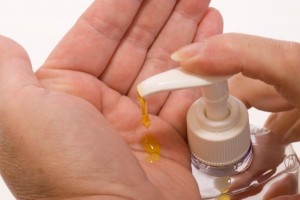We’re often told that washing our hands throughout the day will help to ward off germs, sickness and infection. And the best soap to use? Antibacterial, of course. However, according to the FDA, the very product we rely on to shield us from illness may well be making us sick. In a statement released on December 16, FDA officials warned consumers that the active ingredient in antibacterial soaps – triclosan – may be responsible for hormone imbalances and antibiotic resistance. In fact, despite its widespread use there is no clinical research to confirm that antibacterial soap has any added health benefits whatsoever.
New Regulations
The FDA is giving purveyors of antibacterial washes, such as Johnson & Johnson and Proctor & Gamble Co., one year to clearly demonstrate their benefit to consumers. If the companies have not produced data-based proof by 2016, they will have to either eliminate the antibacterial ingredients or remove labels that promise health benefits. Similar to drugs that must pass through several levels of pharmaceutical quality assurance, so must antibacterial washes be tested for their safety in order to remain on shelves. J&J assures consumers that none of its baby products contain triclosan, and that it plans to remove the ingredient from all adult products by 2015. P&G promises to remove the substance by next year.
Which Products are Under Review?
There are around 2000 soap products (including Dial) under review by the FDA. However, the agency will not be imposing the new safety standards on hand sanitizer, mouthwashes, cosmetics and cleaners that include triclosan in their formulas. Health Canada limits the amount of triclosan in mouthwash to 0.03%, and the amount in cosmetics to 0.3%; however, the agency warns consumers that although these amounts seem small, triclosan is found in so many commonly used products that our exposure adds up quickly over time.
The Push to Ban Triclosan
Since the 1970s, the FDA has been strategizing ways of limiting the use of triclosan. A recent lawsuit has prompted intensified criticism of the agent, and the call to more closely investigate its link with antibiotic resistance. The inquiry reflects concerns about the rise of superbugs and various types of antibiotic resistant bacteria, which is widely regarded as the most serious threat to human health. In fact, the FDA is planning to set new standards of food safety certification by phasing out the use of antibiotics to fatten cattle, hogs and chickens. Triclosan is also under fire from environmental groups like the Environmental Protection Agency (EPA) who is reviewing its use as a pesticide to control the growth of bacteria, mildew and fungi.
Do you believe consumers would be safer if triclosan were completely banned?




